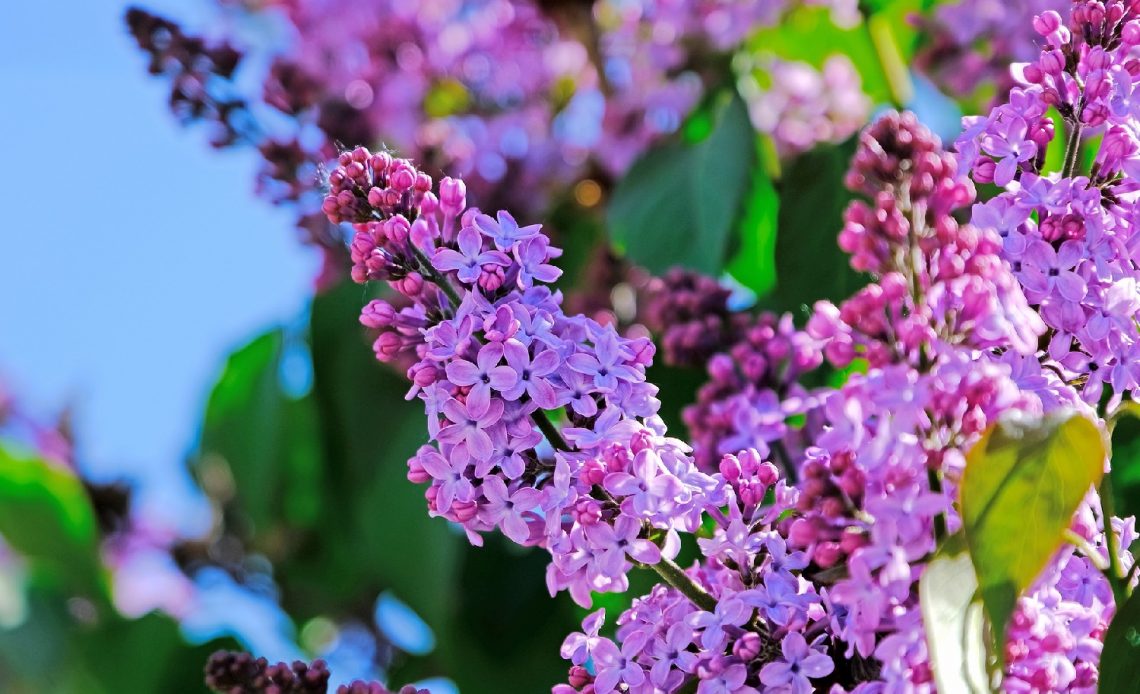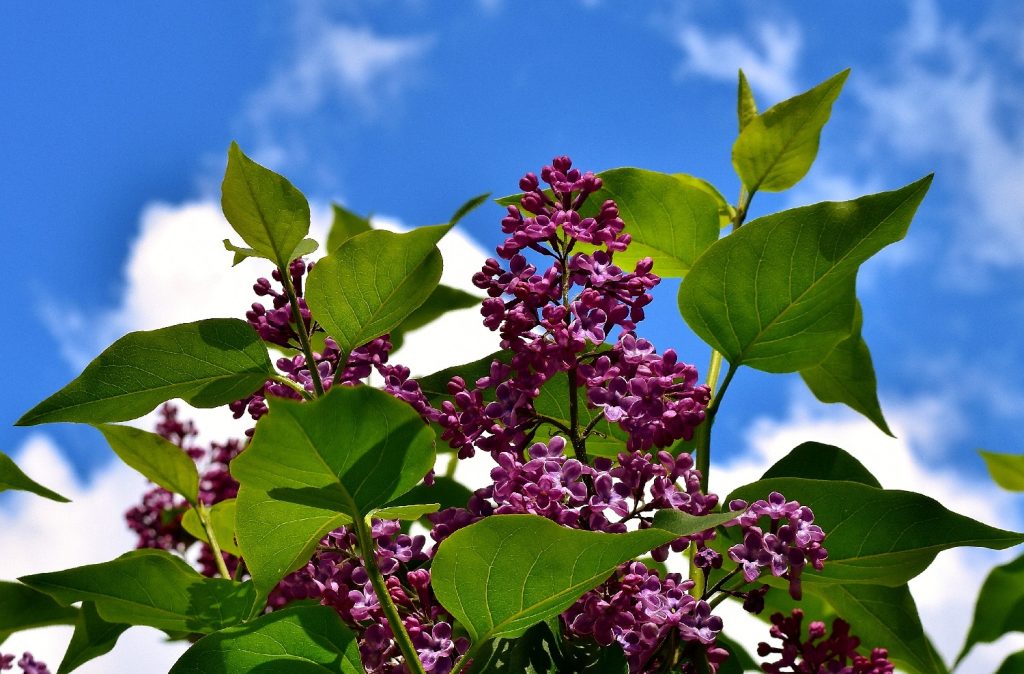

We’re here to help! Wild Yards is a completely free website that is 100% dedicated to helping you create a wildlife-friendly, sustainable yard. Read more
WildYards is reader-supported. When you buy a product through a link on our site, we may earn a comission. Every product is independently selected by our (obsessive) editors and our reviews are unbiased and objective. Read more about our mission or our privacy policy.
Lilacs are some of the most beautiful flowers you’ll have the pleasure of growing. Their bright purple blooms are perfect for adding some color to any garden and are ideal for attracting beneficial animals such as bees and butterflies. But what about other animals – do deer eat lilacs, for example?
Deer won’t typically eat lilacs. With few other food options, however, deer may choose to snack on them. It’s more likely that insects and other visiting wildlife are eating your lilacs – though it’s still important to protect the plants and flowers you adore as best you can.
Why don’t deer like eating lilacs?
Deer tend to prefer plain-tasting and dull-smelling plants and vegetables – it is commonly believed that the lilac’s strong aroma deters these animals from eating them regularly.
Deer have a very strong sense of smell that they rely on to find food and water and to protect each other from predators. A common issue among hunters is that even the smell of their sweat can be enough to warn deer of their presence and send them in the other direction.
As such, highly fragrant plants such as lilacs can deter them – and can even prove distracting, leaving them vulnerable to attack. If distracted by a lilac scent, deer are less ‘free’ to smell incoming predators or other potential dangers. Simply put, deer have evolved to avoid lilacs as they can prove too risky to enjoy.
Other fragrant plants such as lavender, peonies, sage, and bearded irises are also highly distracting to deer. They will only approach and even eat these plants if they absolutely have to. If you’re noticing lilacs starting to go missing from your yard, it’s either that another animal has had a taste, or that your local deer have very little to eat elsewhere close by.
Are lilacs considered deer-resistant plants?
No – and it is important to remember that no plant is truly deer-resistant. Deer will eat lilacs if their other food sources are scarce and they believe it safe enough to chow down. Experts believe that deer seldom eat lilacs, but it’s not impossible. If coupled with other plants they enjoy eating, such as azaleas and impatiens, they may still eat through your lilacs, too.
‘Deer-resistant’ plants, as they are termed, are either too strong-tasting, fragrant-smelling, or otherwise too strangely-textured for most deer to actively seek out and eat. Deer have very plain tastes due to their complex ruminator digestive systems – they are at risk of starving to death if they stuff themselves on dry hay or grass, for example.
If lilacs are disappearing from your garden, don’t be so quick to blame your local deer – other animals are more likely to be partaking of your crops!

What other animals are known to eat lilacs?
Small mammals such as squirrels and rats are known for devouring lilacs occasionally, however, these flowers are most commonly under threat of insect attack.
Scale insects, in particular, love munching on lilacs. They will also create honeydew on the plants, which in turn attracts mold spores drifting across the air to land on lilac leaves, which can lead to fungal development. In time, that can be fatal for even the healthiest of lilacs.
As their name suggests, Lilac leafminers burrow deep into this plant’s leaves to eat them from the inside-out.
Watch out for fuller rose beetles, too. Although they won’t kill your lilacs, they can severely damage your prized specimens, leaving ragged traces on the leaves and flowers.
Should I protect my lilacs from deer?
There’s not much need for concern over protecting your lilacs, specifically from hungry deer. On the other hand, deer tastes and needs will vary from specimen to specimen and from area to area – it may be worth taking a ‘safe rather than sorry’ approach.
Try keeping your lilacs fenced in or behind a garden wall. Whether it’s your outer perimeter or a specific fence or gating you place around your lilac crop, the taller it is, the better. An opaque blockade is ideal for preventing animals from spotting your flowers. This may not be an option you wish to take right away, of course, as you may not be able to see your beautiful blooms!
If you’re serious about keeping deer away from any flowers you are particularly proud of, a proven way to deter these creatures is to simply grow your favorites closer to your property. Deer won’t visit flowers or plants if they grow too close to what they perceive to be predatory territory (that’s you!).
When protecting lilacs, it’s more prudent to consider insect damage. A word of caution before you spray to kill bugs around your flowers – it is never good to use insecticides on your plants, as they can not only damage them, but they can also prove very dangerous for the animals that may rely on them for nectar.
It’s best to try and take care of bugs and insects as and when you see them. Use garden gloves or a soft toothbrush to gently brush the insects off of your plant. It’s not a long-term fix – so be sure to consider netting or natural repellent to ward critters off. You may consider using citronella, for example – or it may be worth attracting hummingbirds to your yard to keep pest levels low!
If there are particular branches, leaves, or petals that seem to be wholly infested, then just cut them off entirely!
By avoiding using insecticides, you will also help to invite other beneficial insects, which will help boost your natural pest control. Wasps and ladybugs are particularly good for keeping leafminer and fuller rose beetle numbers to a minimum.
Can I still attract deer to my yard while growing lilacs?
Yes – and if you grow other plants and leave food out for them – far away from your lilac crop where possible – deer will likely return to you. Consider leaving out bananas, sweet potatoes, and pumpkin, for example, to appeal to their tastes.
Your lilacs are probably safe from deer attacks – but if you’d rather play things safe, grow them close to home, and keep your fences tall!
